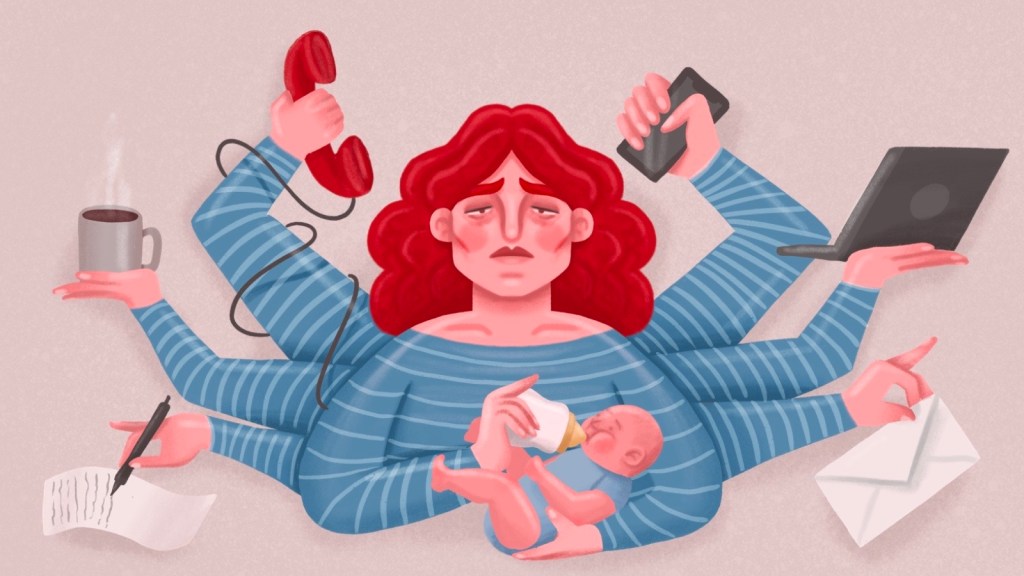The Hidden Economy of Maternity Leave: Struggles and Solutions
After discovering she was pregnant last year, Maddie felt reassured with her family’s financial situation. Her husband held a stable job, earning £45,000 annually, and her marketing firm in London provided an appealing maternity leave benefit that included three months at full salary.
Recently, while taking care of her newborn daughter, Maddie turned to selling a beloved blanket, a wedding gift from dear friends, online for extra income.
“I feel remorseful, but it was valuable,” she admits. “This month, I’ve made £500 by selling various items from our home on platforms like Vinted and Facebook Marketplace, including baby gifts. I’ve taken a 0 per cent interest credit card and discreetly taken on freelance social media work while my baby sleeps. I’m anxious about my employer discovering this, but I prefer this to accumulating debt.”
Maddie, now in her thirties, shares her experience with many parents who are also facing financial strain. However, in a recent Times Radio interview, Kemi Badenoch, a contender for Tory leadership and a previous minister for women and equalities, suggested that maternity pay in the UK is “excessive” and burdensome for businesses. Badenoch, a mother of three, later claimed her remarks were misrepresented.
This has sparked considerable discussion. Women employed full or part-time are entitled to 39 weeks of pay, with the initial six weeks providing 90% of pre-tax wages, followed by 33 weeks at a statutory £184.03. In contrast, self-employed women can only receive £184.03 weekly, which is less than half the minimum wage. Meanwhile, essential expenses like mortgages, rent, utilities, fuel, and groceries must still be accounted for, along with caring for a newborn.
It’s no surprise that numerous women are seeking ways to supplement their maternity income; some covertly engage in remote work, many take on credit cards, and others sell their belongings online whenever possible. One woman relayed that her friend resorted to selling her used nursing bras online to make ends meet.

Liz, 35, from Hampshire, found herself freelancing during her maternity leave from a publishing role that provided a 12-week full pay package – a situation that felt even less sufficient after her salary was reduced by 25% during the pandemic.
“I began freelancing in book editing two months post-birth,” Liz shares. “I was aware that other women in my field were doing the same, making it feel less underhanded. However, that additional income was still inadequate to cover my half of the rent, so we eventually had to leave London. Even now, years later, our finances haven’t fully recovered. I wish to have another child, but we simply cannot afford it.”
For others, minimal maternity pay forces them back to work before they’re physically ready. Laura, 41, a self-employed music instructor from Chester, started offering private lessons just three days after her daughter was born. “I was in intense pain and had to walk awkwardly post-delivery. You wonder, after paying taxes for years, what it’s all for? I feared losing our home, which was incredibly stressful,” she recounts. “I felt like a terrible mother, teacher, and partner.”
UK women may benefit from longer maternity leave compared to many OECD countries, which average just under 19 weeks, but the pay remains among the lowest. Countries like Poland, Germany, Portugal, Turkey, Estonia, and Slovenia cover a woman’s full salary for between 14 and 24 weeks.
While some UK businesses boast about having “enhanced” maternity packages, the reality is often less favorable than it appears. Many companies aren’t required to share this information publicly, and prospective employees may feel hesitant to ask during interviews. According to Maternity Action, only 10% of women currently enjoy added maternity pay from their employers, a significant drop from roughly 50% 15 years ago.
Some women find themselves pushed out of their jobs entirely, having to secure income through alternative means.
Cleo, 38, a former nanny in Ipswich, found the working environment unbearable after informing her employers of her pregnancy and subsequently felt compelled to leave. As a single mother living on statutory maternity pay, she turned to adult content platforms for income.
“I don’t take pride in it, but it allows me to spend more time with my son,” she explains. “I’ve sold photos online, but they only fetch around £50 each. If I had more time, I could potentially earn more, but I also have to care for my baby.”
This reality is familiar to Katie Guild, 32, co-founder of Nugget Savings, which acts as the UK’s largest resource for maternity policies and guidance for employers.
Guild receives numerous inquiries from women, primarily those employed, regarding how to bridge the gap created by inadequate maternity pay. She has heard from individuals selling valuables, participating in online surveys for extra cash, and even asking their parents for support to avoid mortgage arrears. As one message stated, “It’s humiliating.”
Having faced similar challenges after the birth of her child in 2022 while running a nightwear brand and part-time postal job alongside a partner’s role as a police officer, Guild found it difficult to afford maternity leave.
“It was tough; I was working from day one,” she recalls. “I eventually succumbed to the strain and was diagnosed with postpartum depression 18 months later. Many don’t recognize the full extent of the motherhood penalty – we’re one of the wealthiest nations, yet 26% of women incur debt during maternity leave. It’s astounding.”
No one is insulated from these issues. “Our most sought-after masterclass is geared towards individuals earning over £100,000,” Guild notes, “because even a high salary does not ensure an employer provides an enhanced maternity policy. The implications touch nearly everyone.”
Critics might argue that individuals should not have children if they’re not financially stable. Guild counters that the situation is more complex, stating, “It’s not just about financial capability; it’s about being compelled to lose income.” She emphasizes that if there are genuine concerns about declining birth rates, this issue must be addressed.
Another contentious point is the strain on small businesses when female employees take maternity leave. While they can reclaim up to 103% of statutory maternity pay, many owners struggle to provide additional compensation.
Richard, a retail business owner in Reading, remarked, “I’ve had two valued female employees take maternity leave. Researching government support revealed it to be inadequate for covering living expenses. I had to determine how to safely top up pay without risking our company’s financial health. Additionally, the cost of training new personnel looms large, and there’s always the uncertainty of whether employees will return. The government should increase their support. All new mothers deserve a period of full pay, yet we feel adrift with the current options.”
Guild argues that insufficient maternity pay presents obstacles to small businesses, stating, “Reputable companies aim to treat their employees well, but if they can’t afford the associated costs, it puts them in a difficult position. The situation affects business health, employee retention, and relations negatively.”
Meanwhile, women continue to find ways to supplement their maternity income.
Sara, a 39-year-old freelance photographer, is due to give birth in the upcoming year. “My friends keep asking when I’ll stop working,” she shares. “Do they really think I can just stop? I plan to complete my projects up until the last moment and dive back into work as soon as possible. The only uncertainty is whether I should inform the government about it.”
As for potential solutions, Guild believes in aligning statutory maternity pay with minimum wage, ensuring transparency around enhanced maternity policies, and providing more equitable maternity and paternity leave—currently, statutory leave for fathers remains a mere two weeks. “The truth is, these burdens still predominantly fall on women,” she concludes.




Post Comment